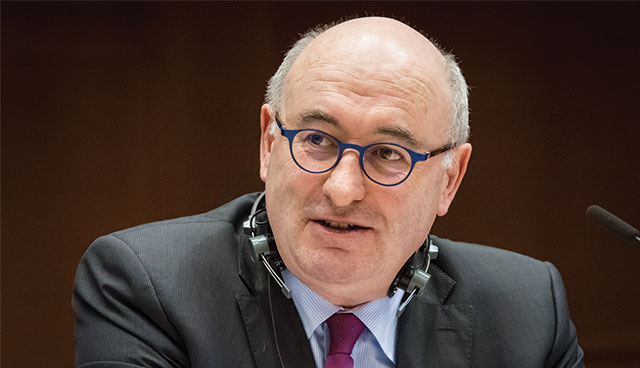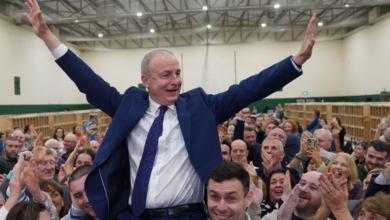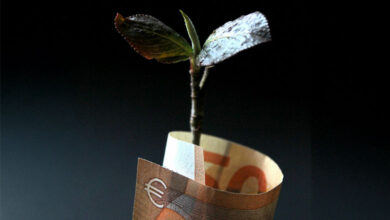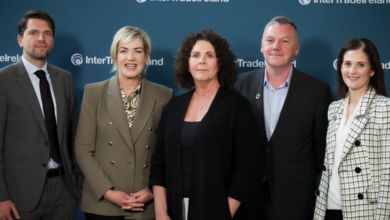Hogan stands by free trade deal


EU Farm Commissioner Phil Hogan has expressed the view that Europe must strive to secure a free trade deal with the UK, as part of the final Brexit settlement.
“This is only my opinion. Obviously, it is in Ireland’s best interests to have such arrangements put in place. But to make this objective a reality will require the Irish Government securing an agreement with the other 26 EU Member States.” Hogan spoke at a recent Brexit briefing hosted by Fine Gael Senator Michelle Mulherin in Ballina, County Mayo.
He made it quite clear that Brussels will negotiate on behalf of the EU-27, once the Brexit procedures gets underway: bilaterals involving the UK and Ireland will not constitute any part of the process.
Hogan said the Irish Government must seek to form alliances with other EU Member States. “This should not be that difficult a process. Germany, for example, currently enjoys a €50 billion trade surplus with the UK. And, no doubt, there are other EU Member States, which would be very much in favour of a free trade arrangement with the UK.”
He also emphasised that the Brexit deal arrived at must ensure that cheap food imports are not allowed into the UK. These products could, subsequently, flood the Irish market. “There must be full parity of quality standards and the trade deal arrived at recently between the EU and Canada could be used as a blueprint in this regard.”
The Commissioner confirmed that a two-year negotiation process will follow, once the UK triggers Article 50 of the Lisbon treaty. He added that not reaching agreement within this time period could represent the worst of all worlds for Ireland’s farming and food sectors. “Having no agreement in place would pave the way for the introduction of swingeing WTO tariffs on foodstuff exported from the European Union to the UK. For example, levies of up to 68 per cent could be imposed on Irish beef exports to Britain, if the Brexit deal is not sorted out within a two-year time frame.”
“No doubt, there are other EU Member States, which would be very much in favour of a free trade arrangement with the UK.”
Speaking at the same event, IFA president Joe Healy said that current national CAP funding levels must be maintained post-Brexit. “The financial hole that will be created in the EU’s finances, once Brexit takes effect, must not be allowed to impact on future CAP budgets at a national level,” he added.
While recognising the drop-off in EU funding levels that will accompany the United Kingdom’s departure from the European Union, Healy said that the Irish government must play its part, along with the other EU-26 member states, to make up for the shortfall. “All EU member states giving a little bit more is the obvious way forward,” he suggested.
The IFA president highlighted the value of the CAP in delivering affordable food to consumers across Europe. “The CAP has helped deliver high quality food at extremely competitive prices for many years,” he said. “The reality is that farmers must be compensated accordingly for the investment which they continue to make in their businesses. I fully expect the EU Commission to recognise this reality.”
It has been estimated that a net deficit of €3 billion will be created in Europe’s CAP budget, once Brexit becomes a reality. But Healy firmly believes this shortfall can be made up, if the EU-27 work together. “This is a relatively small figure in the context of the EU’s overall budget,” he said. “If EU solidarity means anything, then the budget shortfall must be made good so that farmers are not hit with CAP cuts when the UK leaves.”
Healy believes the biggest threat to Irish agriculture in half a century is the impact of the Brexit negotiations on farm incomes. Speaking at the organisation’s 2017 annual meeting he said that with 40 per cent of Ireland’s food exports going to the UK, no other member state and no other sector is as exposed in these negotiations. He added: “Agriculture and food cannot become a battleground between Brussels and London. There are too many farm livelihoods and jobs at stake. Politics cannot be allowed to override our fundamental economic interests.
“The Irish Government must use the strong relationship it has with both EU and UK leaders to influence a constructive approach to these difficult negotiations. In Brussels, the Commissioner for Agriculture, Phil Hogan, must make the retention of free trade in agriculture and food products between the EU and UK a priority. In the short term, uncertainty has led to the weakening of sterling putting serious pressure on prices and exports.
“Let’s be clear: it is farmers who have taken most of the pain resulting from the weakness of sterling. Beef farmers took a hit of €150 million last year from this alone, while mushroom farmers saw their margins wiped out. These losses are a direct result of a political decision outside farmers’ control and cannot be tolerated. Politicians in Dublin and Brussels cannot ignore the ongoing impact of the sterling devaluation, and direct aid for the farmers and sectors affected must be on the agenda.”
The third speaker at the Ballina briefing was Ibec agri-food analyst Paul Kelly. He said that sterling has weakened by 18 per cent against the euro since the Brexit vote was taken in the UK. “This has contributed to the €500 million that has been wiped off the value of food exports from Ireland to the UK during the second half of 2016,” he added. “And the exchange rate issue might have been a lot worse for Ireland had Donald Trump not been elected as President of the United States.”
Kelly also confirmed that the recent exchange rate movements involving sterling and the euro were not cyclical in nature. “We are now talking about structural change, a development which the Irish government must react to in terms of it making stabilisation funding available to exporting businesses. Proposed changes to the UK’s tax regimes, post-Brexit, will also act to increase the relative competitiveness of Irish companies exporting goods and services into the UK.”
Kelly said that funding levels for organisations such as Bord Bia must be increased during the period ahead. Where Brexit is concerned, he made it very clear that transitional arrangements must be put in place, which could pave the way for a free trade deal between the EU-27 and the UK down the line.
“If no agreement is reached then WTO default trading tariffs will kick in. Where beef is concerned, this would shift the current 85p exchange rate between sterling and the euro out to the equivalent of £1.35. Within this scenario, the impact on the livestock sector would be traumatic.”
Kelly also pointed out that Ireland’s agri-food industry must succeed in bringing as many young graduates as possible, with a science and technology background, into the fold. “This is particularly so in regions such as Mayo, where farming and food are so important to the local economy.”





